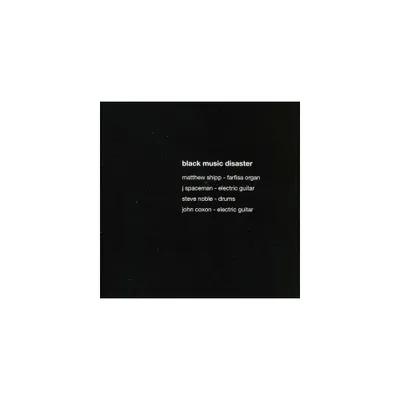Home
Virginia Traditions: Non-Blues Secular Black Music
Loading Inventory...
Barnes and Noble
Virginia Traditions: Non-Blues Secular Black Music
Current price: $19.99


Barnes and Noble
Virginia Traditions: Non-Blues Secular Black Music
Current price: $19.99
Loading Inventory...
Size: OS
*Product Information may vary - to confirm product availability, pricing, and additional information please contact Barnes and Noble
The Blue Ridge Institute for Appalachian Studies at Ferrum College in Ferrum, Virginia, released a series of eight LPs in the late '70s and early '80s under the group title
Virginia Traditions
. Each album featured an aspect of
traditional
Virginia
folk
music, setting old 78s and
field recordings
alongside more recent field material to create an interesting and historical view of the styles of music presented. This volume, released on CD by
Global Village
and subtitled
Non-Blues Secular Black Music
, is perhaps the most interesting in the series, collecting narrative songs,
country
dance tunes,
minstrel
pieces and several old-time banjo recordings that help sketch in the non-
blues
aspect of black
music in Appalachia. It is a fascinating set, with
Lemuel Jones
' 1936 protest song,
"Poor Farmers,"
John Calloway
's halting, fractured version of
"The Cuckoo Bird"
from 1976,
Irvin Cook
's condensed, efficient take on
"Old Blue"
(also recorded in 1976), and
Lewis "Big Sweet" Hairston
's two gentle banjo tunes,
"Bile Them Cabbage Down"
and
"Cotton-Eyed Joe,"
emerging as particular delights. Also worth noting are two non-
Cajun
accordion pieces from the Northern Neck area, as well as two
-like banjo songs,
"I Used to Work on the Tractor"
(the song refers to working for a contractor, and has nothing to do with farm machinery) and
"Tennessee Dog,"
by convicted axe-murderer
Jimmie Strothers
that were recorded by
Alan Lomax
in 1936. Intended as an archival release, the album has fluctuating sound quality, and some of the older material suffers from the scratches and pops inherent to rescued 78s, but the historical value of what is here more than outweighs the occasional sound defect, and the end result is a fascinating portrait of music that has all but vanished in the 21st century. ~ Steve Leggett
Virginia Traditions
. Each album featured an aspect of
traditional
Virginia
folk
music, setting old 78s and
field recordings
alongside more recent field material to create an interesting and historical view of the styles of music presented. This volume, released on CD by
Global Village
and subtitled
Non-Blues Secular Black Music
, is perhaps the most interesting in the series, collecting narrative songs,
country
dance tunes,
minstrel
pieces and several old-time banjo recordings that help sketch in the non-
blues
aspect of black
music in Appalachia. It is a fascinating set, with
Lemuel Jones
' 1936 protest song,
"Poor Farmers,"
John Calloway
's halting, fractured version of
"The Cuckoo Bird"
from 1976,
Irvin Cook
's condensed, efficient take on
"Old Blue"
(also recorded in 1976), and
Lewis "Big Sweet" Hairston
's two gentle banjo tunes,
"Bile Them Cabbage Down"
and
"Cotton-Eyed Joe,"
emerging as particular delights. Also worth noting are two non-
Cajun
accordion pieces from the Northern Neck area, as well as two
-like banjo songs,
"I Used to Work on the Tractor"
(the song refers to working for a contractor, and has nothing to do with farm machinery) and
"Tennessee Dog,"
by convicted axe-murderer
Jimmie Strothers
that were recorded by
Alan Lomax
in 1936. Intended as an archival release, the album has fluctuating sound quality, and some of the older material suffers from the scratches and pops inherent to rescued 78s, but the historical value of what is here more than outweighs the occasional sound defect, and the end result is a fascinating portrait of music that has all but vanished in the 21st century. ~ Steve Leggett


















